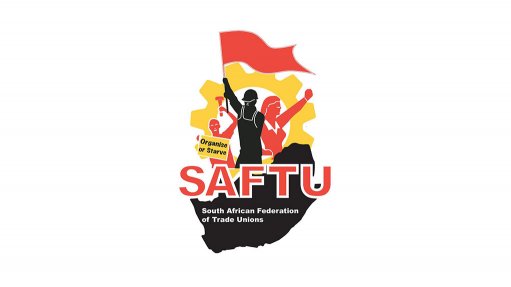
The South African Federation of Trade Unions made history on 25 April 2018 when thousands of workers surged on to the streets of South African cities in the Saftu-led protest against a poverty national minimum wage and laws to curb workers’ right to strike.
Then on 9 May 100 000 Australian workers brought the city of Melbourne to a halt in a march for a higher minimum wage and against the casualisation of labour and worsening conditions of employment.
Just three days later, tens of thousands of British workers, led by the Trades Union Congress (TUC), marched through London on 12 May to demand a "new deal" on working conditions, a higher minimum wage, a ban on zero-hours contracts, improved job security, more funding for public services and an end to the worst pay squeeze in modern history.
The similarity of the demands in all three marches proves that these issues are symptoms of a global attack on workers’ living standards and working conditions and prove that workers are ready to fight back.
The TUC released research showing that a decade after the 2008 financial crisis, real wages were still worth £24 a week less, and were not expected to return to pre-crash levels until 2025. "It's taking wages longer to recover from this crash than from the Great Depression and Second World War," said TUC General Secretary Frances O'Grady.
Marchers applauded Labour Party leader, Jeremy Corbyn, when he pledged that the next Labour government would create a ministry to guarantee workers’ rights. “We will give workers more power, by strengthening their rights and freedoms to organise together to improve their lives. A Labour government would increase training for young workers, build more homes, nationalise some sectors and give workers a greater say in how their companies are run, including whether they should be sold”.
Public and Commercial Services Union General Secretary, Mark Serwotka, warned of a strike ballot among civil servants in support of demands for a 5% pay rise. “Our members in the civil service have had enough of the pay freeze and cuts to jobs. If the government will not give them what they deserve, we will strike”.
The march included nurses, ambulance crews, postal workers, teachers, civil servants, cleaners and workers involved in current disputes, including those at restaurant chains TGI Fridays and McDonald’s and train guards.
“There is a new mood in the country,” said Frances O’Grady. “People have been very patient but they are now demanding a new deal for decent jobs, fair wages, to fund public services and for strong trade unions. You can’t hand out bumper dividends to shareholders and cut workers’ wages. You can’t fill your boots in the boardroom and tell workers to tighten their belts, and you can’t build world-class companies on the back of second-class rights. The greed has to stop.”
In many other parts of the world as well workers are fighting back. Railway workers in France, Ukraine and Iran are continuing with industrial action. Thousands of teachers have been on strike in the USA and China. Garment workers in the Philippines are striking. And here we have seen the heroic four-week long strike by bus drivers.
Saftu is sending a message of support to its British fellow workers and will continue to build links with them and workers around the world.
Workers of the world unite!
Issued by Saftu